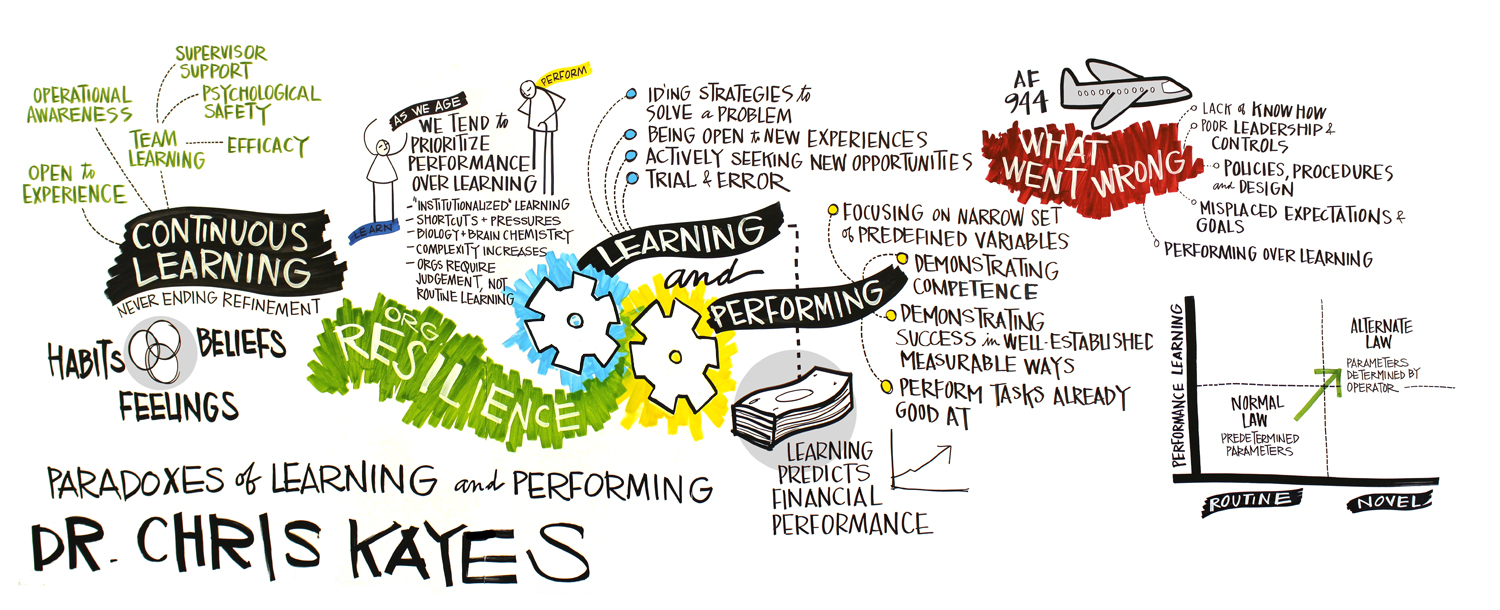
A big idea that I took away was the role of curiosity and safe risks to support individual and group learning. And I’m wondering how the opposite of curiosity and safe risk — confidence and “safe routines” – might work against learning and support performance.
In short, Kayes noted from his work that a key individual factor that predicts learning is “open to new experiences.” A key team processes that predict learning is psychological safety and supervisory support. DW: Being open to novelty is a hallmark of conceptual frameworks of curiosity. And that makes intuitive sense in terms of the role it plays in individual learning. Psych safety and the leader role are also well established in team learning literature, so good to see it here. However, it raises a question in me: I wonder how their opposites, such as indifference, confidence, normality, and routines, might explain individual and team performance?
Kayes reminded us of the Air France 944 tragedy happen? There was an equipment failure and the cockpit crew couldn’t tell how fast they were going. The crew shifted into manual flying mode and the pilots misinterpreted what was happening. The crash was explained by several factors, including a lack of know-how, poor leadership and coordination, and policies. In addition, the crew struggled to move from a performance mode over a learning mode. Kayes suggests that some of the key differences between learning-performance are things like being open to newness vs. demonstrating competence, trail and error vs. doing what we’re good at already, etc. Daniel: if routine processes are good 99.9% of the time, how do we learn to detect “rare events” and switch into a very different set of learning behaviors.
Why do we prioritize performing over learning? Chris offered a sketch of various developmental explanations: brain chemistry, social pressures, etc. Daniel: Hmm, there may be explanations for why performance is more prevalent as we get older: as we know more and grow older, experiences become more routine and less novel – language, behaviors, etc. But maybe a better question is “when is performance prioritized? My guess is that, in broad strokes, performing is doing with current knowledge/skills, while learning is developing new knowledge/skills. Rather than think of learning/performance as separate activities, perhaps a more helpful approach would be to think of them as nested: one can perform without learning, but not learn without performing. Learning as an activity is a subset of performing. In some circumstances learning has a higher priority.
